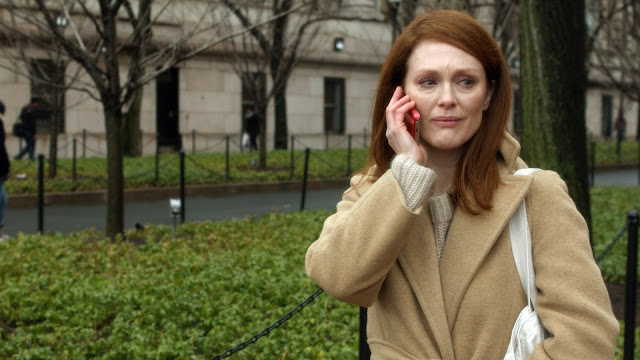“Floating Weeds” is a simple film with a simple story. It is heavily weighted with Japanese tradition and culture, but there are still universal principles in the underlying message. Director Yasujiro Ozu communicates through his unique camerawork, his depiction of Japanese culture and familial relations, and through simple depictions of conversation the universal ideal of finding beauty in the every day.
Ozu is revered for his filming style. He uses an unmoving camera technique to create the feeling that the voyeur is paying such close attention to the characters he wouldn’t want to miss anything by moving. Each low-angle shot feels like a still and the lack of zoom, tracking cam, and fade-outs make it seem like the audience is catching a precious, intimate glimpse into real life. It’s as if Ozu doesn’t wish to jazz up the every day just to entertain, we should just appreciate the privileges of daily living as they come.
Family relationships play an important role in this. In most cultures, families are valued; it is no different with Japanese culture. Having spent time in Japan myself, I've learned that the ways we express our love and appreciation for our family and loved ones differ from America to Japan. Komajuro, the main character, certainly exhibits a certain compulsion to be in control of his mistresses and son. The idea of a patriarchal society is very important to the Japanese people. This acceptance of male dominance can be disconcerting for the foreign viewer, but this was not looked down upon in 1950’s Japan. Komajuro cared for his son, Kiyoshi, and wished to protect him. There are a few instances of physical abuse from Komajuro to his mistress, Kiyoshi, and Kiyoshi’s lover. Though this left me with a bad taste about Komajuro, it was still just a manifestation of him caring after those he was close to in the way he knew how. His devotion to his family, though his methods are different from our own culture, still help us see the importance of caring for our own family and appreciating our lives with them.
Ozu manages to capture these glimpses into the family life through simple conversations. Besides the overarching conflict of Kiyoshi not knowing his true parentage, there are very few major conflicts. These family relationships are just a part of life. As we learn from these families, it helps us appreciate those small, meaningless conversations with our own families. Many times, we talk about nothing. But those are still formative in our relationship building and bonding. These times are to be appreciated.
“Floating Weeds” is sometimes slow and much different from other American films. But given the time, it is rewarding to relate to another culture and see the ways they appreciate their lives to help us appreciate our own. 5/10
Ozu is revered for his filming style. He uses an unmoving camera technique to create the feeling that the voyeur is paying such close attention to the characters he wouldn’t want to miss anything by moving. Each low-angle shot feels like a still and the lack of zoom, tracking cam, and fade-outs make it seem like the audience is catching a precious, intimate glimpse into real life. It’s as if Ozu doesn’t wish to jazz up the every day just to entertain, we should just appreciate the privileges of daily living as they come.
Family relationships play an important role in this. In most cultures, families are valued; it is no different with Japanese culture. Having spent time in Japan myself, I've learned that the ways we express our love and appreciation for our family and loved ones differ from America to Japan. Komajuro, the main character, certainly exhibits a certain compulsion to be in control of his mistresses and son. The idea of a patriarchal society is very important to the Japanese people. This acceptance of male dominance can be disconcerting for the foreign viewer, but this was not looked down upon in 1950’s Japan. Komajuro cared for his son, Kiyoshi, and wished to protect him. There are a few instances of physical abuse from Komajuro to his mistress, Kiyoshi, and Kiyoshi’s lover. Though this left me with a bad taste about Komajuro, it was still just a manifestation of him caring after those he was close to in the way he knew how. His devotion to his family, though his methods are different from our own culture, still help us see the importance of caring for our own family and appreciating our lives with them.
Ozu manages to capture these glimpses into the family life through simple conversations. Besides the overarching conflict of Kiyoshi not knowing his true parentage, there are very few major conflicts. These family relationships are just a part of life. As we learn from these families, it helps us appreciate those small, meaningless conversations with our own families. Many times, we talk about nothing. But those are still formative in our relationship building and bonding. These times are to be appreciated.
“Floating Weeds” is sometimes slow and much different from other American films. But given the time, it is rewarding to relate to another culture and see the ways they appreciate their lives to help us appreciate our own. 5/10











